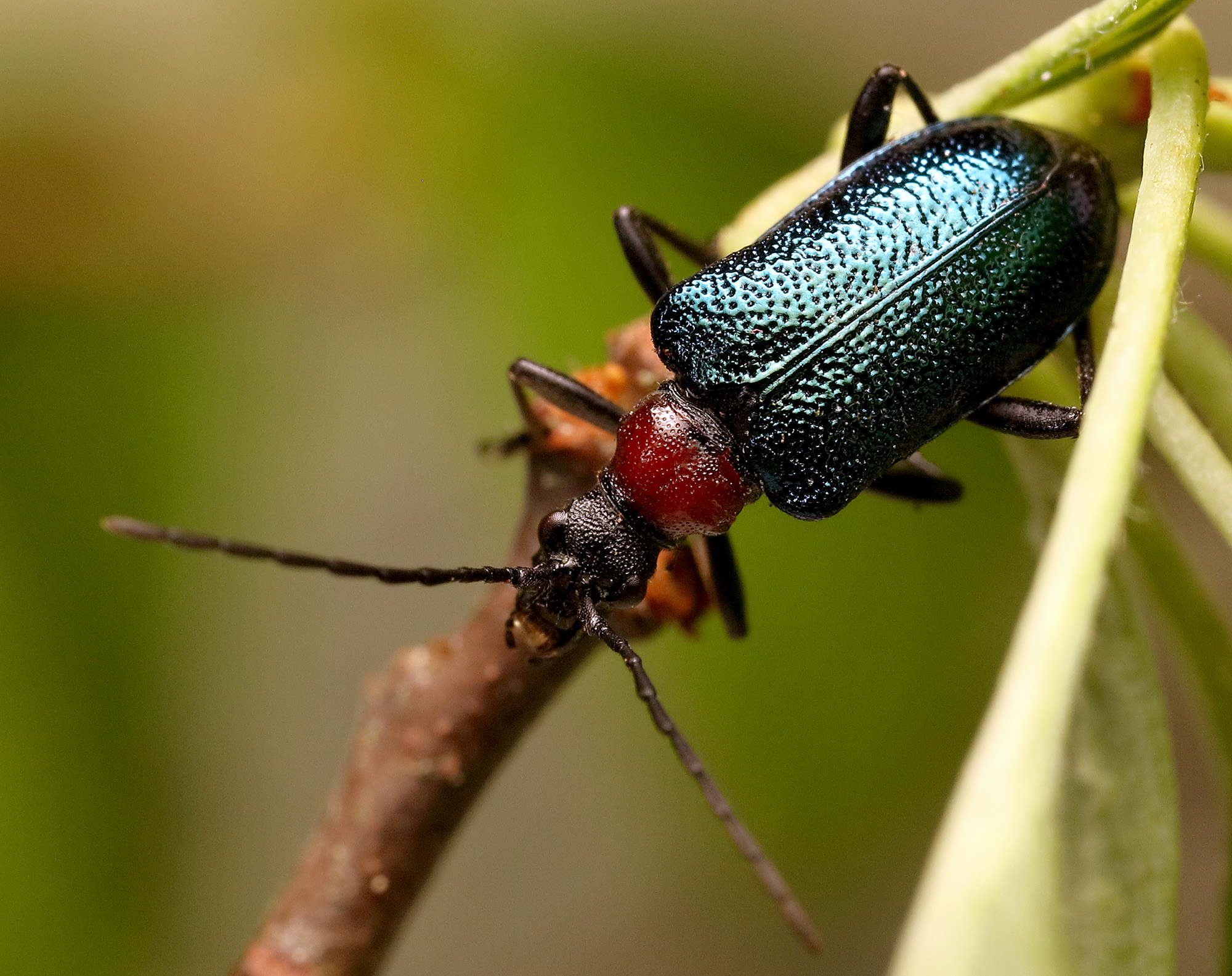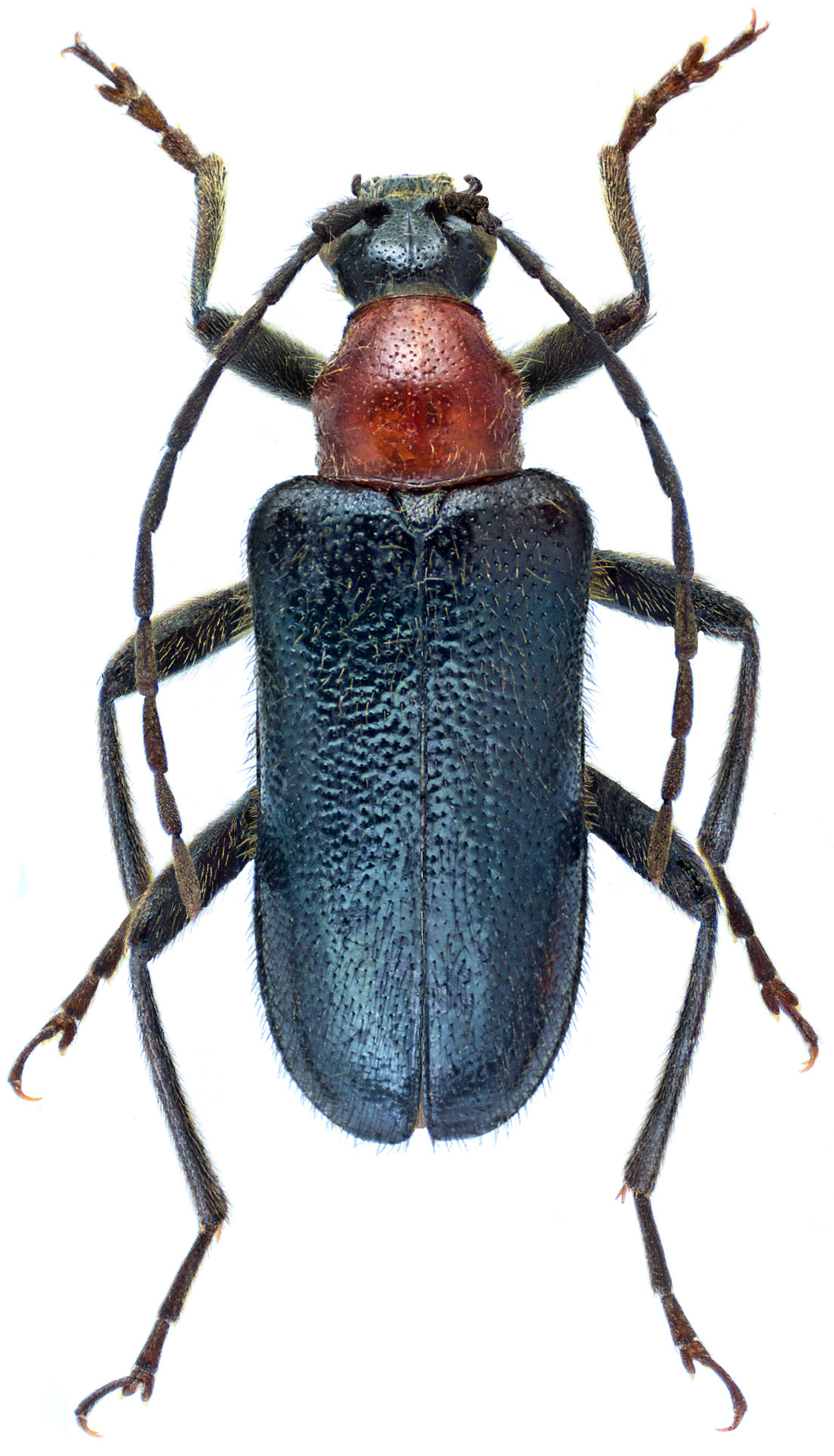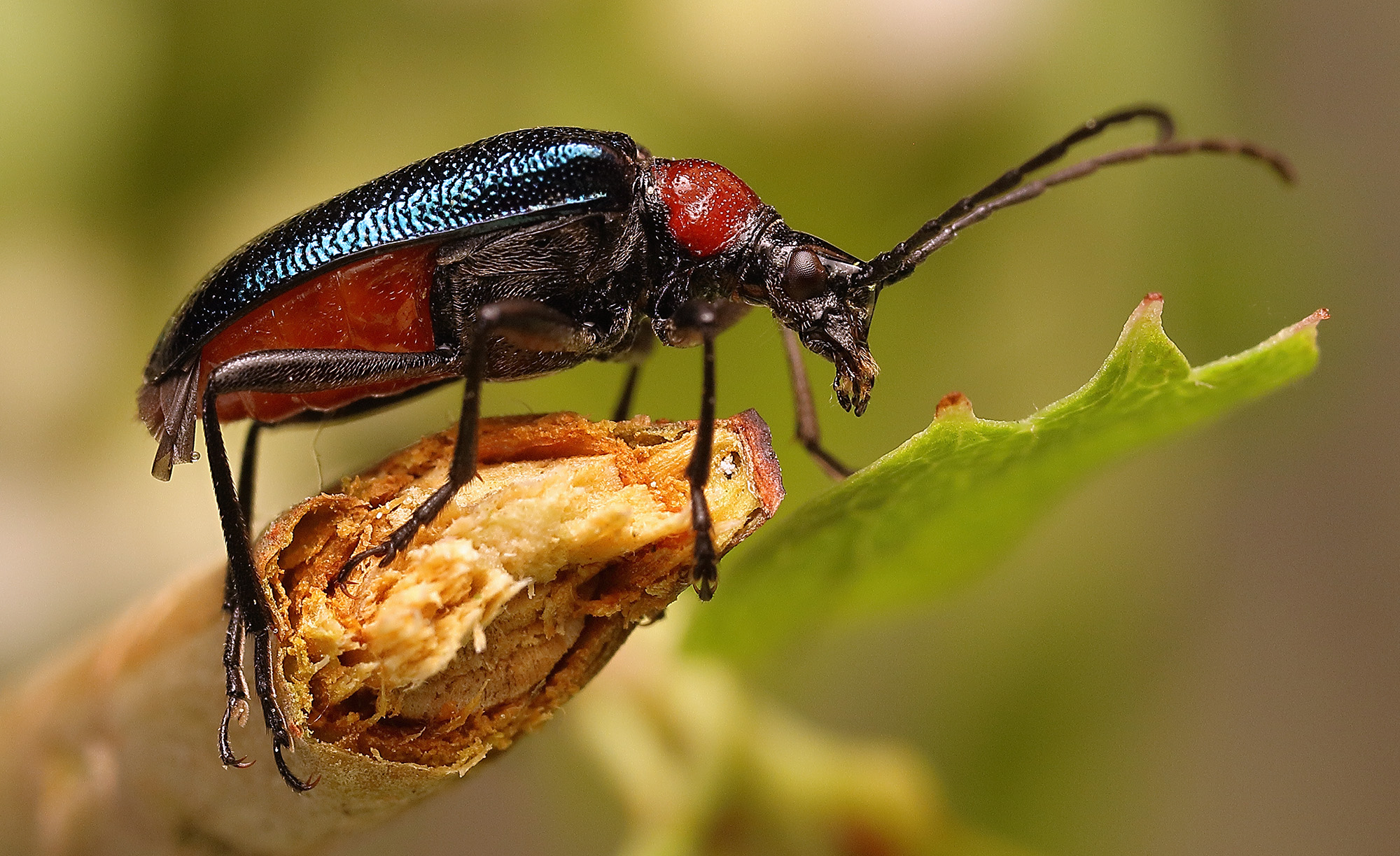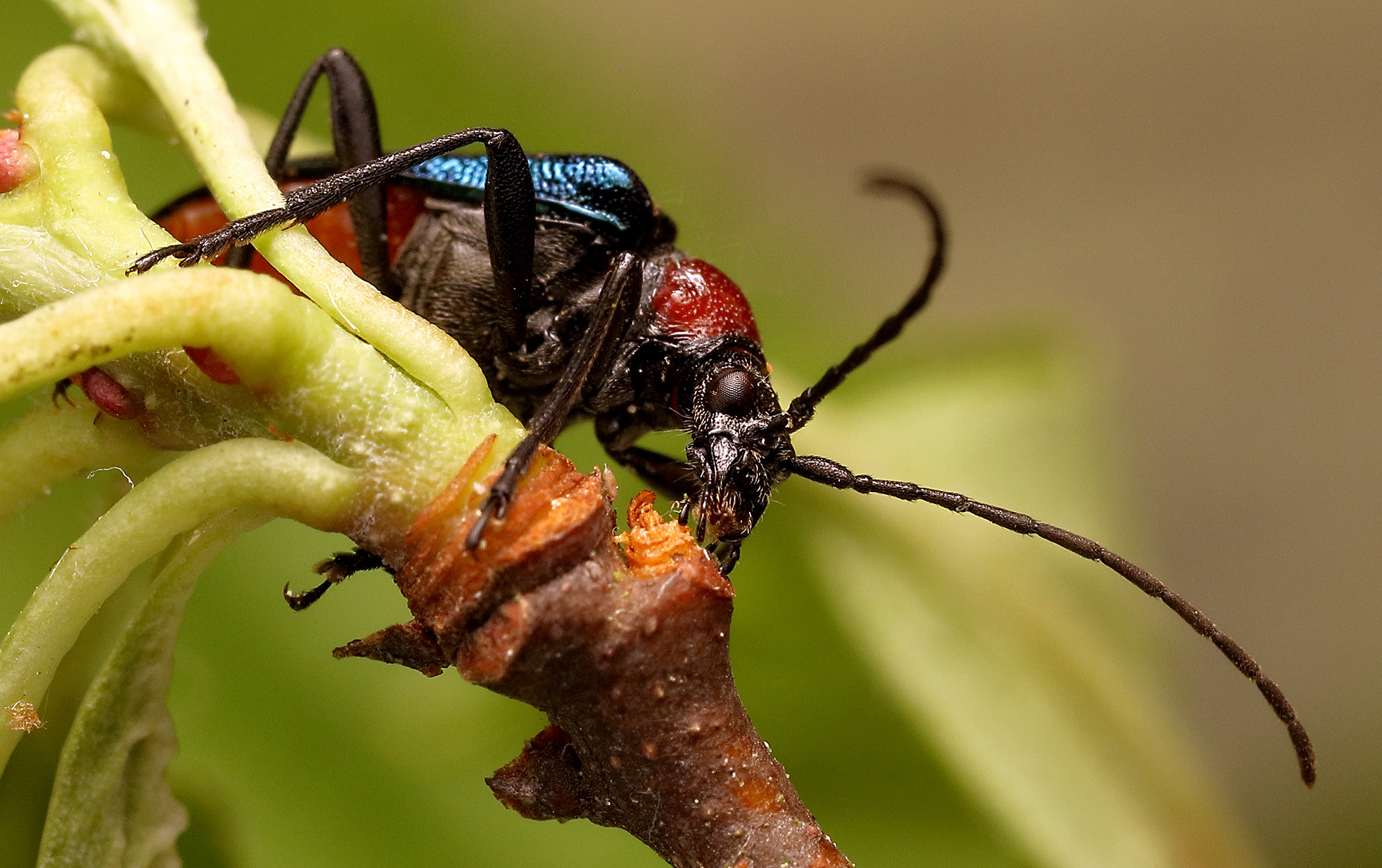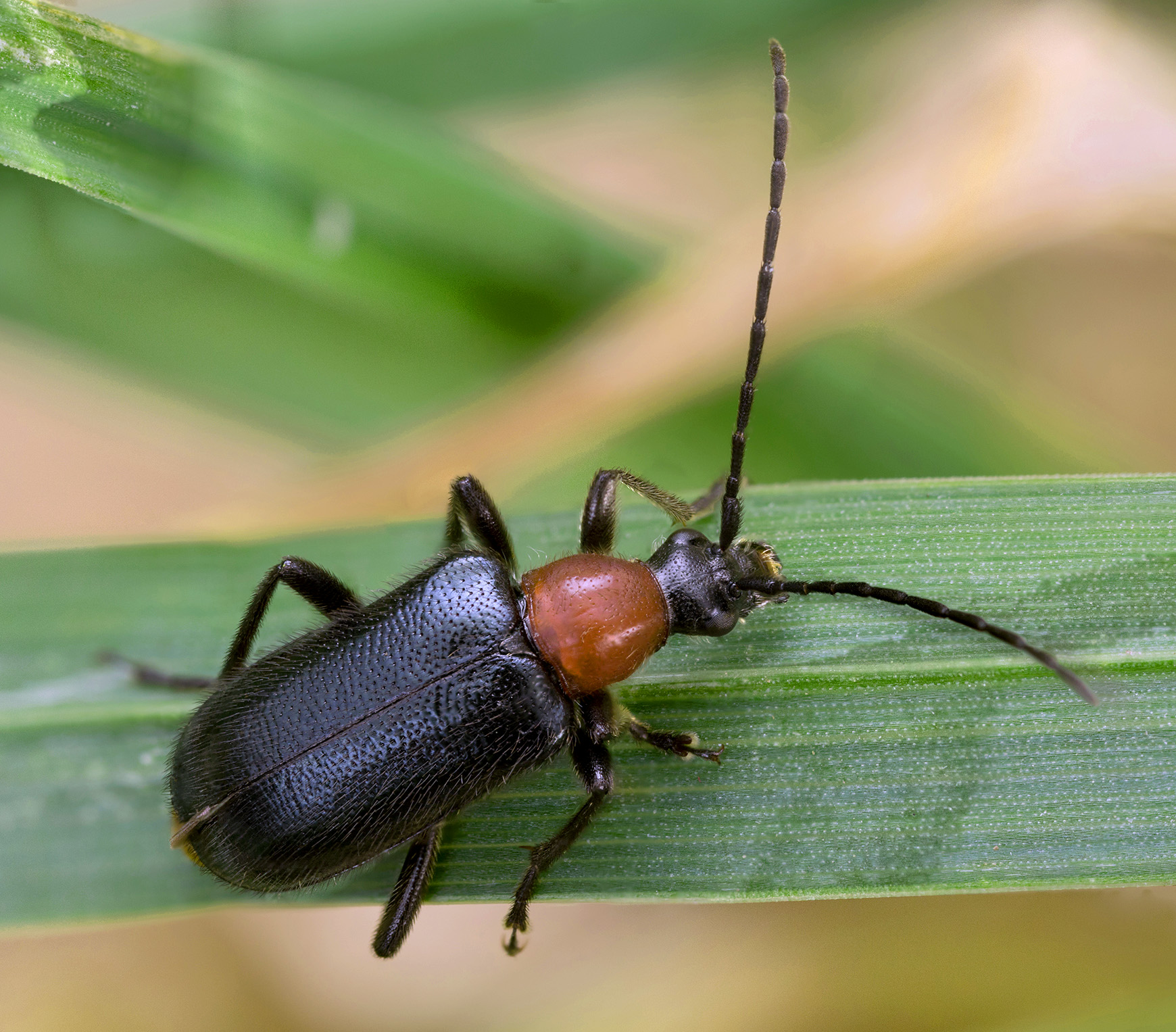Dinoptera collaris belongs among the most common European species and frequent flower visitors, occurring not only in preserved natural localities, but often also
in cultural landscape, parks and gardens. The larvae live under the loose bark of dead trees, branches, trunks, surface roots and create galleries filled
by frass. They can move freely on the surface. Before the second overwintering, the mature larvae enter the soil, where they hibernate in the created pupal cells,
and in the spring they pupate. Adults occur from May to July (peak at the turn of May and June) on many different flowers, blossoming trees and bushes.
| Body length: | 6 - 9 mm |
| Life cycle: | 2 years |
| Adults in: | May - August |
| Host plant: | polyphagous in deciduous trees (Quercus, Pyrus, Acer, Fraxinus, Populus, Malus, Cornus etc.) |
| Distribution: | Europe, Caucasus, Transcaucasia, Turkey, Syria, Iran |
The depicted living beetles were collected on flowers (Apiaceae) in: (MP) - Křivoklátsko Protected Landscape Area (Rakovník district, Central Bohemia, Czechia) on May 15, 2020; Tabulová National Natural Reserve
(Břeclav district, South Moravia, Czechia) on May 27, 2018. The mounted specimen was collected in Kulmbach environs (Upper Franconia, Bavaria, Germany) on July 4, 1972.
Collected by Miroslav Polcar, Udo Schmidt and Daniel Rydzi
[✧]
Sláma M.E.F.:
Tesaříkovití – Cerambycidae České republiky a Slovenské republiky / Cerambycidae of the Czech Republic and Slovak Republic.
Milan Sláma private printing, Krhanice, 383pp [page 213], 1998 [ISBN: 80-238-2627-1].
[download  ]
]
